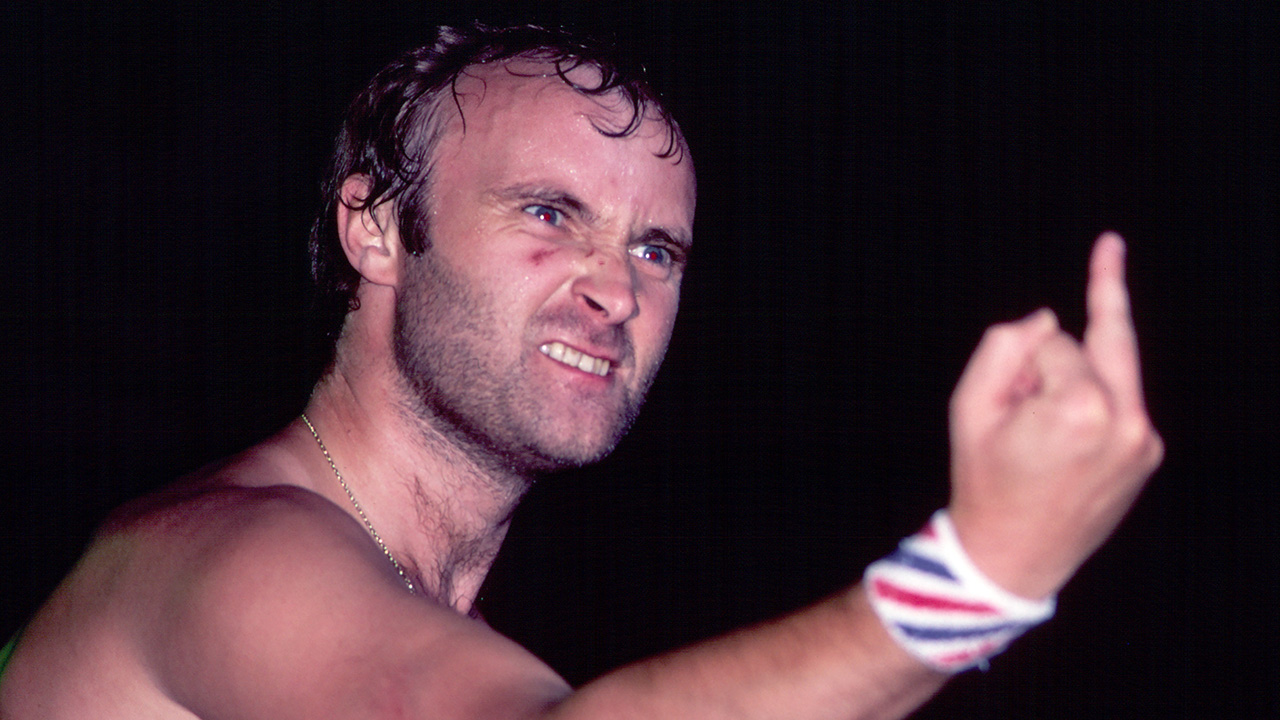“Brand X was great fun to play with – not so much fun to listen to”: Phil Collins’ adventures outside Genesis with Robert Plant, Eric Clapton and others made him so big he had to apologise
Wherever you looked in the 80s and 90s, there he was as a session man, producer or solo artist. But it wasn’t ego – it was down to his passion for music

When Genesis’ future was in doubt after Peter Gabriel left, Phil Collins indulged his jazz-fusion passions with Brand X. It started the ball rolling on a solo career that saw him working as a session drummer, producer and pop star. In 2016 he reflected on an era that was so successful he had to apologise.
If Phil Collins played anything too fancy while recording Robert Plant’s first solo albums Pictures At Eleven and The Principle Of Moments, the Led Zeppelin icon would tell him not to give him “any of that knitting.” Plant likened Collins’ tricky flourishes to somebody frantically assembling a pullover.
Collins wasn’t averse to a bit of knitting in Genesis – but in his jazz-fusion side project Brand X it seemed like he was using several balls of wool at once. “Brand X was great fun to play with, not so much fun to listen to,” he says now.
The band began in 1974 based around three session musos: bassist Percy Jones, keyboard player Robin Lumley and guitarist John Goodsall. They signed to Island, but after deciding their early demos sounded too much like the Average White Band, moved closer to the output of jazz rock godheads Weather Report and the Mahavishnu Orchestra.
When Collins joined Brand X, he regarded them as a ‘hobby group’ – a bit of light relief from Genesis. But as always, he threw himself into the project. Debut album Unorthodox Behaviour emerged in the summer of 1976, followed less than a year later by Moroccan Roll. Collins isn’t so fond of the debut. “But Moroccan Roll was a good album – although there was still a lot of what I call ‘dodging bullets’ going on,” he says. “The way we played was full of gunfire – bang, bang, bang!”
It was. Their almost entirely instrumental music was ablaze with paradiddles, rimshots, burbling basslines and buzzing guitar solos. The Cadbury’s gorilla of In The Air Tonight fame would have struggled to master the fancy drum patterns on Euthanasia Waltz, Smacks Of Euphoric Hysteria or Why Should I Lend You Mine (When You’ve Broken Yours Off Already). Collins described the ensemble’s relentless, frantic approach as ‘Daz rock’ after the washing powder’s resemblance to amphetamine sulphate and other Class A substances.
When he converted a couple of bedrooms in his ex-marital home into makeshift studios, Brand X moved in for a jazz-fusion sleepover – without the sleep. “There was a ‘day band’ and a ‘night band’ and John Goodsall played in both – I’ll say no more,” Collins grins. “I played in the ‘day band,’ but the studio wasn’t soundproofed. It was a crazy time – Genesis, Brand X, Face Value…
Sign up below to get the latest from Prog, plus exclusive special offers, direct to your inbox!
“I’m doing this book now and looking back at the chronology, I think, ‘God, was I away for that long?’ I went away, came back for two weeks, back in the studio, and then away again. How did I find the time for all this?”
He worked on and off with the side-project until the early 1980s. By then, though, he’d also played on albums by Brian Eno, Steve Hackett, Mike Oldfield, Peter Gabriel, Robert Fripp, Thin Lizzy, John Martyn… the list goes on. “No wonder I got divorced,” he sighs. “This explains it.”
It was Martyn who introduced Collins to Eric Clapton, which led to the drummer’s first high-profile production job. Although when the pair started drinking together in Guildford, the blues guitar hero didn’t have a clue who he was talking to. “Eric didn’t know Genesis – that wasn’t his scene,” explains Collins. “When Pattie [Boyd, Clapton’s wife] took him to see us at Hammersmith, he said, ‘Oh right, this is the bloke from the pub?’ Eric was drinking a lot at the time…”
In 1984 Clapton asked Collins to produce his next album. He agreed, but it would be a steep learning curve. “In Genesis, the record company left us alone. I realised that was a rare thing when I worked with Eric.” He encouraged Clapton to write the songs he wanted to write. “I thought his previous albums had been a bit lazy and I wanted him to find his voice again,” he recalls.
The label told Eric, ‘You are in the marketplace with Duran Duran now.’ And it was true
The pair delivered the finished album, 1985’s Behind The Sun, only for Clapton’s manager to take Collins aside. “He said, ‘Bad news – we’re going to LA to record a few more songs, and you ain’t coming.’” The Warners label were unhappy with the lack of guitar solos and, predictably, wanted some hits.
When Slowhand re-hired Collins to work on 1986’s August, Atlantic insisted on bringing in veteran producer Tom Dowd, whose credits included Ray Charles. “Working with Tom was a thrill for me,” says Collins. But the experience again made him realise how much freedom he had with Genesis. “I remember Warners said to Eric, ‘You are in the marketplace with Duran Duran now.’ And it was true.”
By the that time, though, Collins was in that same marketplace as a bona-fide Armani-clad pop star, with his album No Jacket Required at No.1 in 11 countries. Such was his ubiquity in the mid-80s that when he performed at Live Aid at Wembley Stadium, then hopped on Concorde to play with a reformed Led Zeppelin in Philadelphia, no one batted an eyelid. It just seemed like a very Phil Collins thing to do.
In the past, all that extracurricular activity might have been attributed to ego; a desire to impose himself on the world. Now it seems more to do with his great passion for music. “Becoming a solo artist happened to me when I was already in my 30s,” he says, “I think it helped – it kept me grounded.” But it also gave him the opportunity to work with musicians he’d admired, in some cases since the 60s and early 70s. Who can blame him for spreading himself a bit thin?
He slowed down again in the 90s; and then his third marriage and a new family took precedence over music. In 2014 he told The Daily Telegraph: “It’s hardly surprising that people grew to hate me. I’m sorry I was so successful. I honestly didn’t mean it to happen like that.”
The designer‑suited, No Jacket Required-era Phil Collins certainly deserves respect. But let’s also salute the other Phil Collins – the one with the fisherman’s beard, tank top and beanie hat causing a frontal-lobe headache with those mind-boggling time signatures.
Mark Blake is a music journalist and author. His work has appeared in The Times and The Daily Telegraph, and the magazines Q, Mojo, Classic Rock, Music Week and Prog. He is the author of Pigs Might Fly: The Inside Story of Pink Floyd, Is This the Real Life: The Untold Story of Queen, Magnifico! The A–Z Of Queen, Peter Grant, The Story Of Rock's Greatest Manager and Pretend You're in a War: The Who & The Sixties.
You must confirm your public display name before commenting
Please logout and then login again, you will then be prompted to enter your display name.

![Robert Plant - Big Log (Official Video) [HD REMASTERED] - YouTube](https://img.youtube.com/vi/FxSsol3Zd7k/maxresdefault.jpg)

